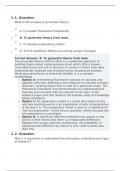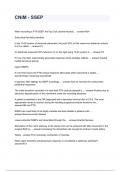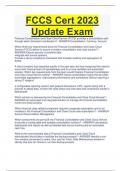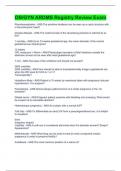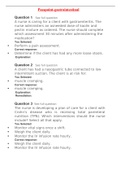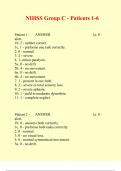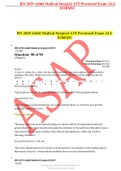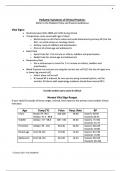Summary
Summary Partnership Law (Distinction)
- Module
- Business Law & Practice
- Institution
- University Of Law (ULaw)
Distinction level notes for the LPC at University of Law. Laid out in clear table format and covering all course content in workshop order for the 2018/19 course, these are the most up to date and comprehensive LPC notes currently available, and include step-by-step model answers and specimen paper...
[Show more]




